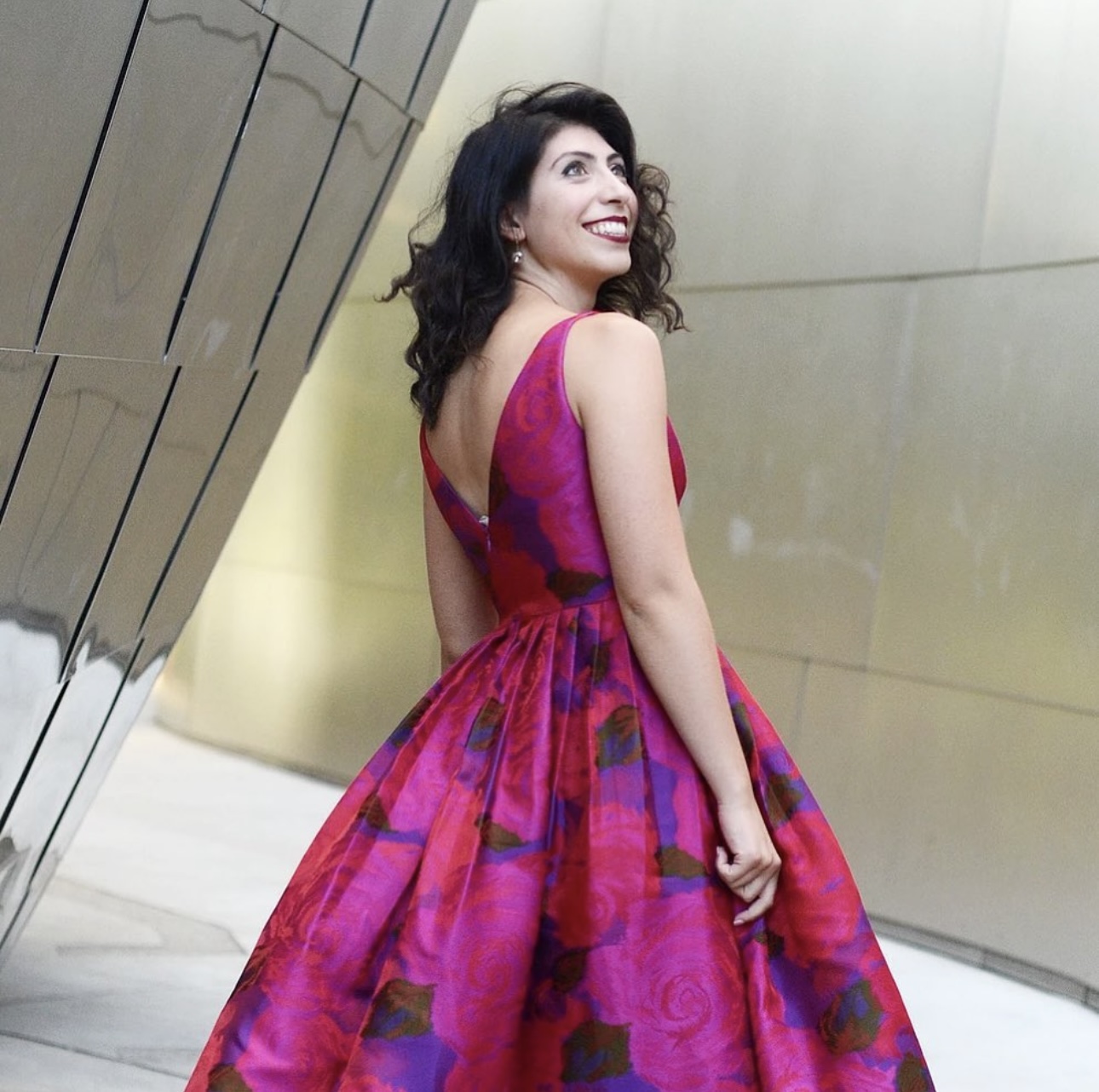We caught up with the brilliant and insightful Natalie Buickians a few weeks ago and have shared our conversation below.
Natalie , thanks for joining us, excited to have you contributing your stories and insights. We’d love to hear about a project that you’ve worked on that’s meant a lot to you.
One of the most meaningful projects I’ve had the honor to participate in was a concert tour through Shanghai. The first concert took place at the He Luting Hall at the Shanghai Conservatory of Music, and the second was held in Gulangyu Concert Hall on the island of Kulangsu, off the coast of mainland China. I was invited to perform alongside Spanish pianist and scholar, Javier Arrebola, whom I first met during my fellowship at Carnegie Hall’s SongStudio in January 2020. Preparing for this tour was a large undertaking, given my full-time role as a professor of voice at Pepperdine University, as well as my commitments as a concert artist in Los Angeles, and an auxiliary singer with the LA Master Chorale. This collaboration was especially significant because it brought us together again to perform a repertoire of about 26 French art songs, spanning from the late 1760s to the early 1920s, including works by Debussy, Fauré, Poulenc, and others.
It was deeply meaningful cultural exchange. One of the encores Javier and I prepared included a Chinese folk song called “Three Wishes of a Rose” arranged by the founder of the Shanghai Conservatory, Dr. Xiao Youmei. The text represents the love that one has for their homeland. This was our way of expressing our immense gratitude to audiences for inviting us to perform for them. The tour was met with warm ovations, including a surprise appearance by the president of the Shanghai Conservatory, Liao Changyong, who personally expressed his appreciation.
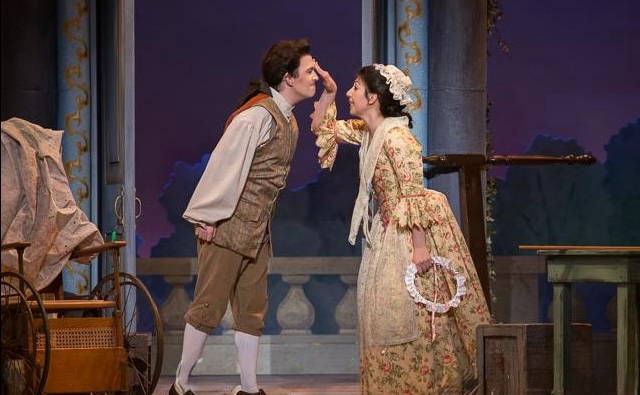
Natalie , before we move on to more of these sorts of questions, can you take some time to bring our readers up to speed on you and what you do?
Journey
My journey into music began unexpectedly when I was five years old. My mother’s best friend, a classical pianist visiting from Arizona, happened to notice that I was singing the melodies from television commercials and that I could find the corresponding pitches on my dad’s keyboard. She suggested that my mom take me to audition for a newly founded music school in Glendale, California, created by one of her close friends. That audition ended up being an hour-long evaluation of rhythm, pitch accuracy, pitch memory, vocal quality, and musical aptitude. I was accepted into the community music school and enrolled in what became a formative, conservatory-style program at Lark Musical Society. Established in the mid-1990s and still active, the program offered a remarkably rigorous curriculum for young musicians, including piano training, music theory, music history, composition, aural skills, and an array of extracurriculars: handbells, choir, opera, and dance. I remained at Lark throughout my childhood and into my high school years, building a comprehensive musical foundation that would shape everything that followed. Initially, I pursued music at the undergraduate level as a piano performance major, but my passion for singing soon led me to add vocal performance, ultimately graduating with a double major. I went on to complete my master’s and doctoral degrees at the Eastman School of Music. Although I don’t come from a musical family, I was fortunate to have continuous support for this path. Music has become both my profession and the lens through which I experience the world. My travels are tied to performances and teaching engagements. Each new city or country I visit is encountered through music, whether on stage or in the classroom.
As a professor, my goal is to foster a warm but rigorously challenging environment where my students can grow both artistically and personally. Discipline, through active commitment, is at the core of my teaching philosophy. I emphasize consistency, hard work, and the understanding that failure is the best part of the learning process. My students are some of the most important people in my life, and I aim to make their development my primary goal.
Private voice instruction is unlike any other class or team activity. The closest comparison I can make is the relationship between Olympians and their coaches. Voice lessons are deeply personal, built on trust, honesty, and shared goals. My objective is to help each student become the strongest and most expressive singer they can be — polishing their strengths while thoughtfully addressing their weaknesses. This work goes beyond musical technique. I focus on presentational skills, acting, and holistic growth, nurturing not only musicians but well-rounded artists and individuals. I want my students to feel free to experiment, to fail without fear, and to stay motivated because they know someone is firmly in their corner. That kind of supportive, honest mentorship was transformative in my own life, and it’s exactly the kind of relationship I strive to offer my students today.
When I’m invited to sing, whether it’s a small performance or a major concert, my goal is always to bring the highest level of vocalism and artistry I can offer. I learn music quickly, and over the years I’ve become the kind of artist colleagues in Los Angeles can call and trust to deliver. That trust reflects not only my technique and professionalism but the artistic integrity I’ve worked hard to build. Art grows as we do. Life’s challenges and my work as a teacher have deepened my musical voice. Seeing my students grapple with the same struggles I faced has often led me draw from my own experience, only to realize I can apply that same guidance to myself. It’s a reciprocal process that pushes me forward as an artist. Concertizing in Los Angeles has been especially rewarding. The city’s musical landscape is incredibly diverse: it’s the center of film music, a hub for popular music in every genre, and home to a vibrant classical and experimental scene. Working as both a singer and teacher here has allowed me to inhabit many musical worlds at once, and that diversity is enriches my musical life.
Most Proud of/what I want people to:
This is always a difficult question to answer, because we’re all constantly changing. But if there’s one thing I want potential students, audiences, or supporters to know, it’s that I’m going through the same human experiences they are. I face the same challenges and joys, and music has become my way of expressing them.
Whether you’re in my studio or in the audience at a performance, my hope is that something I share resonates with you, that I’m able to impart something real that touches your heart. That connection, human to human through music, is what I’m most proud of.
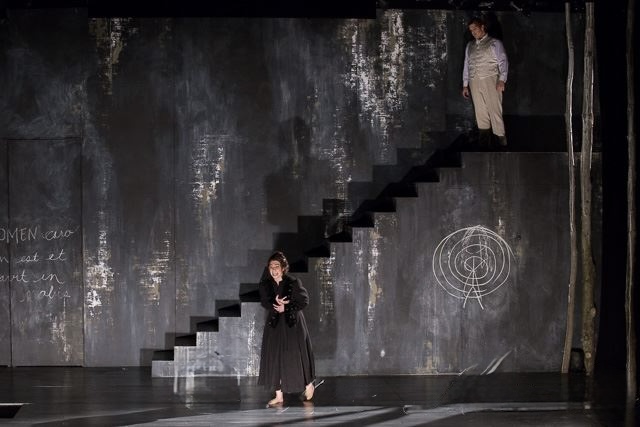
Is there a particular goal or mission driving your creative journey?
For me, this question goes straight to the heart of purpose. Some people are lucky enough to discover their extraordinary talent, intelligence, or athletic ability early in life and quickly chart a path forward. Most of us, though, find our way over time, through study, work, and reflection. And if we’re fortunate, we eventually look beyond simply what we do to examine why we do it and the meaning we bring to that purpose. When I began teaching full-time after graduation, one of my biggest driving forces was preparing students for the realities of the classical music industry. I didn’t yet know how to solve all of the industry’s problems, but I knew I could give my students a clear and honest picture before they graduated. I wanted them to be prepared not just as musicians, but as people, and, especially, as entrepreneurs. That meant encouraging them to develop a broader range of skills: communication, development, administration, business acumen, alongside their artistry. This remains a core part of my mission at Pepperdine. Ultimately, my goal is to foster artistic growth through a genre that captures the human condition in epic terms. Opera, in particular, has a unique beauty: it illuminates both human frailty and the resilience that emerges in the face of hardship. Imparting that to my students is deeply meaningful, and often a reminder that I need to embody those lessons myself as an artist.
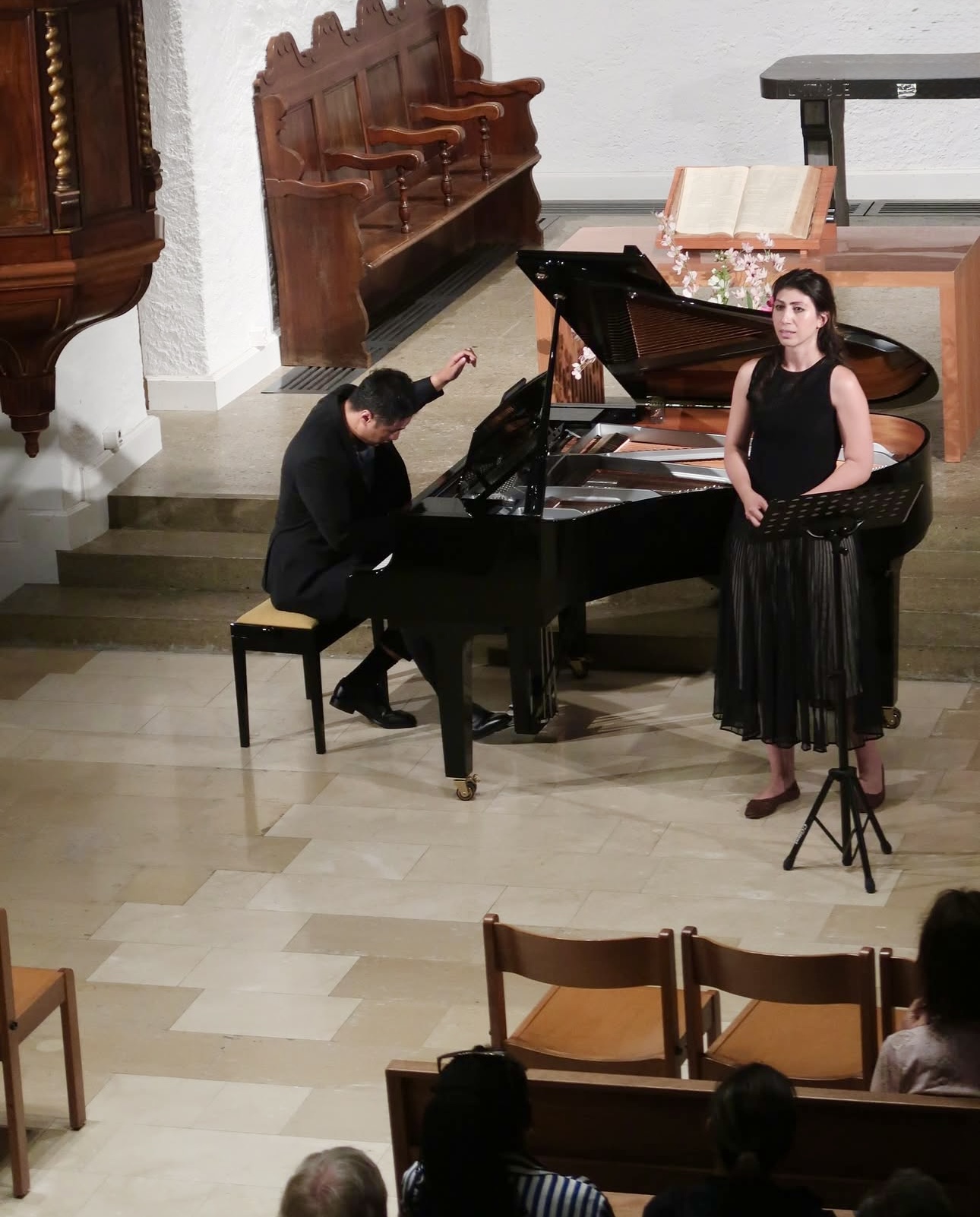
We often hear about learning lessons – but just as important is unlearning lessons. Have you ever had to unlearn a lesson?
I really love this question because the lesson I had to unlearn is one I’m still unlearning: I had to let go of my defenses. I had to learn what it truly means to be vulnerable and to genuinely listen. When I was younger, I listened primarily to protect myself: to defend rather than to receive. I kept adding skills, determined that if I became good enough, I’d be untouchable: a kind of “bulletproof” artist. But that’s not only unrealistic; it misses the point entirely. Art isn’t about being invulnerable: it’s about openness, authenticity, and connection. When I learned to let go, I could follow my own artistic impulses, not just the ones imparted to me from my teachers and coaches. Teaching has been a major part of this growth. By encouraging my students to find their voices, I learned to honor and trust my own.
Contact Info:
- Instagram: @natalie.buickians
- Facebook: Natalie Buickians
- Youtube: Natalie Buickians
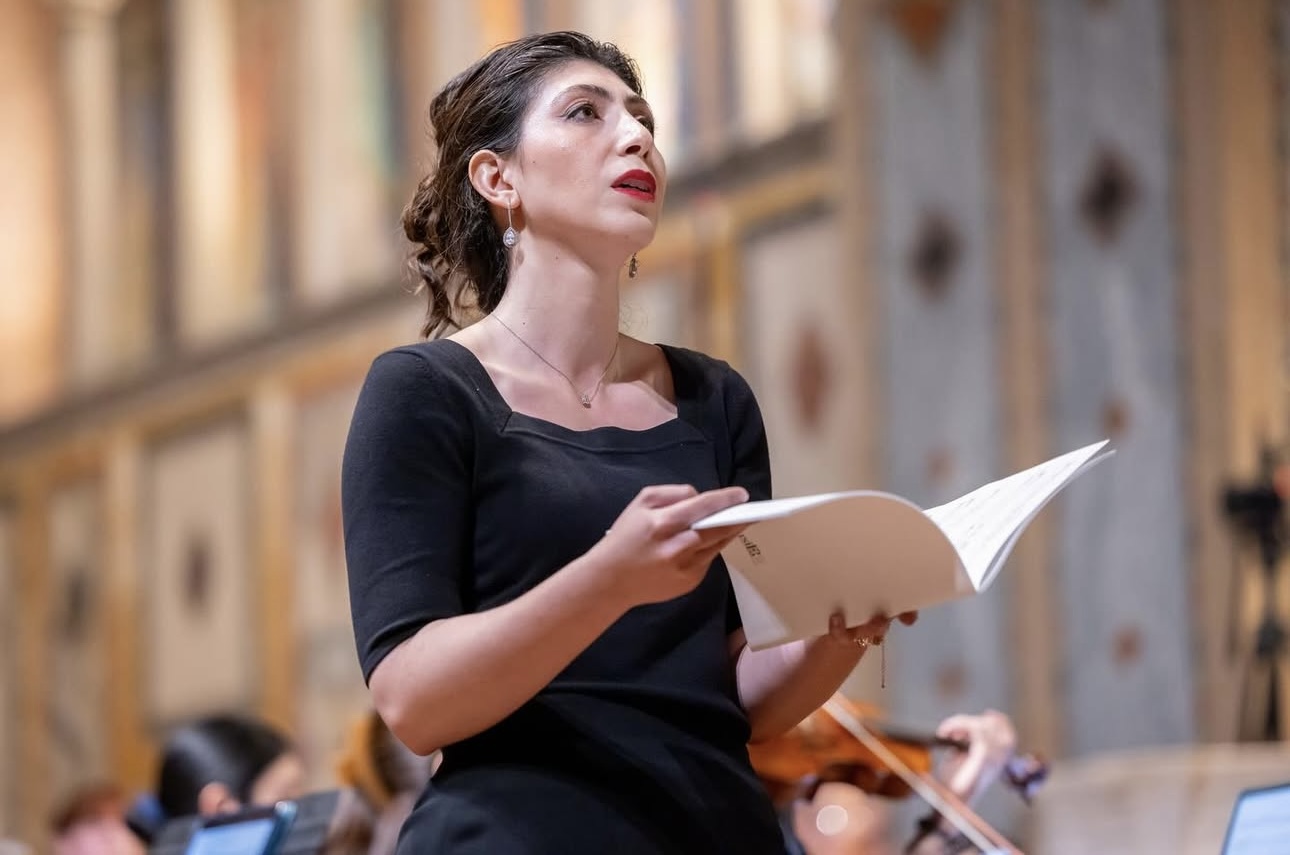
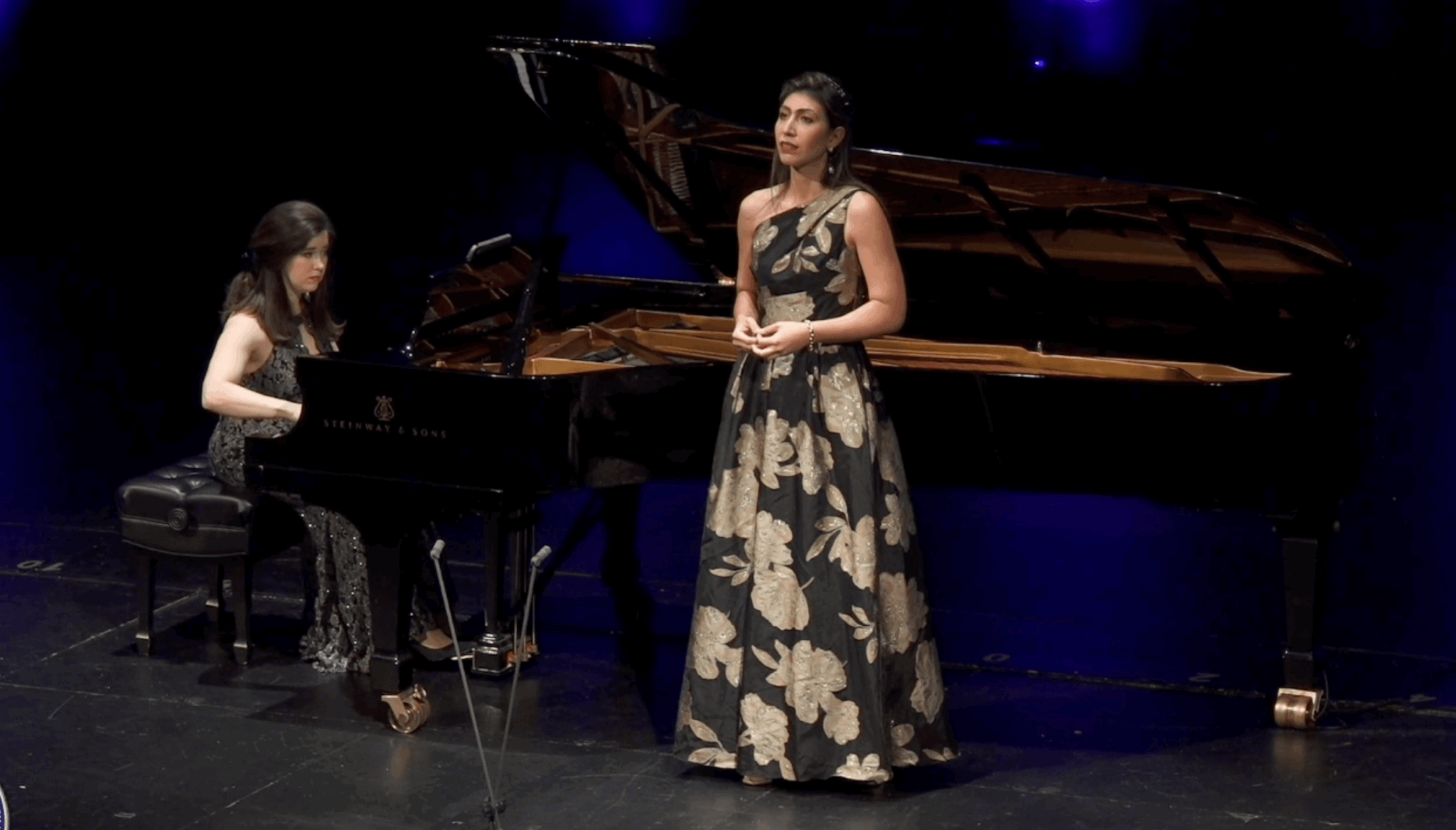
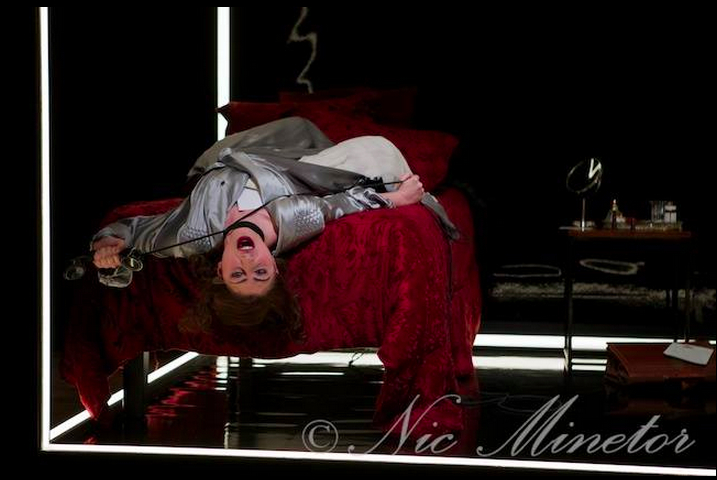
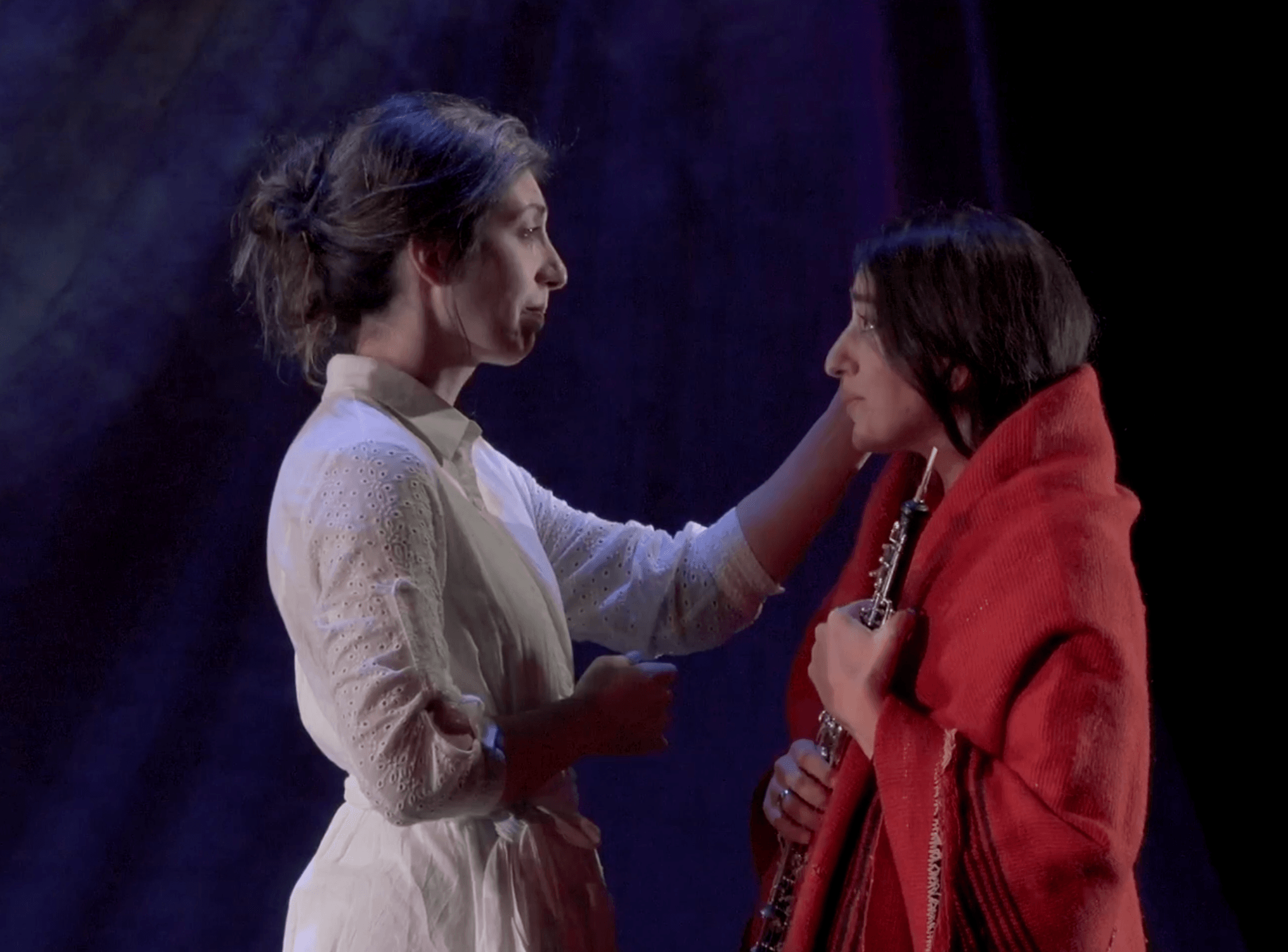
Image Credits
Nic Minetor, Gelfand Piper,


